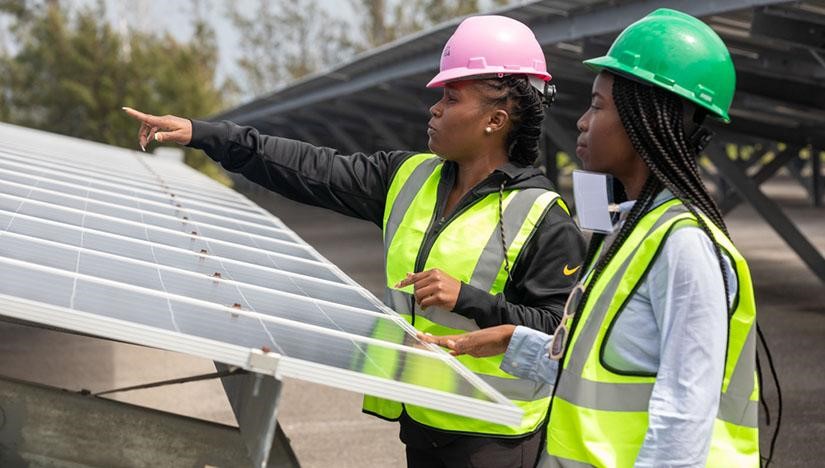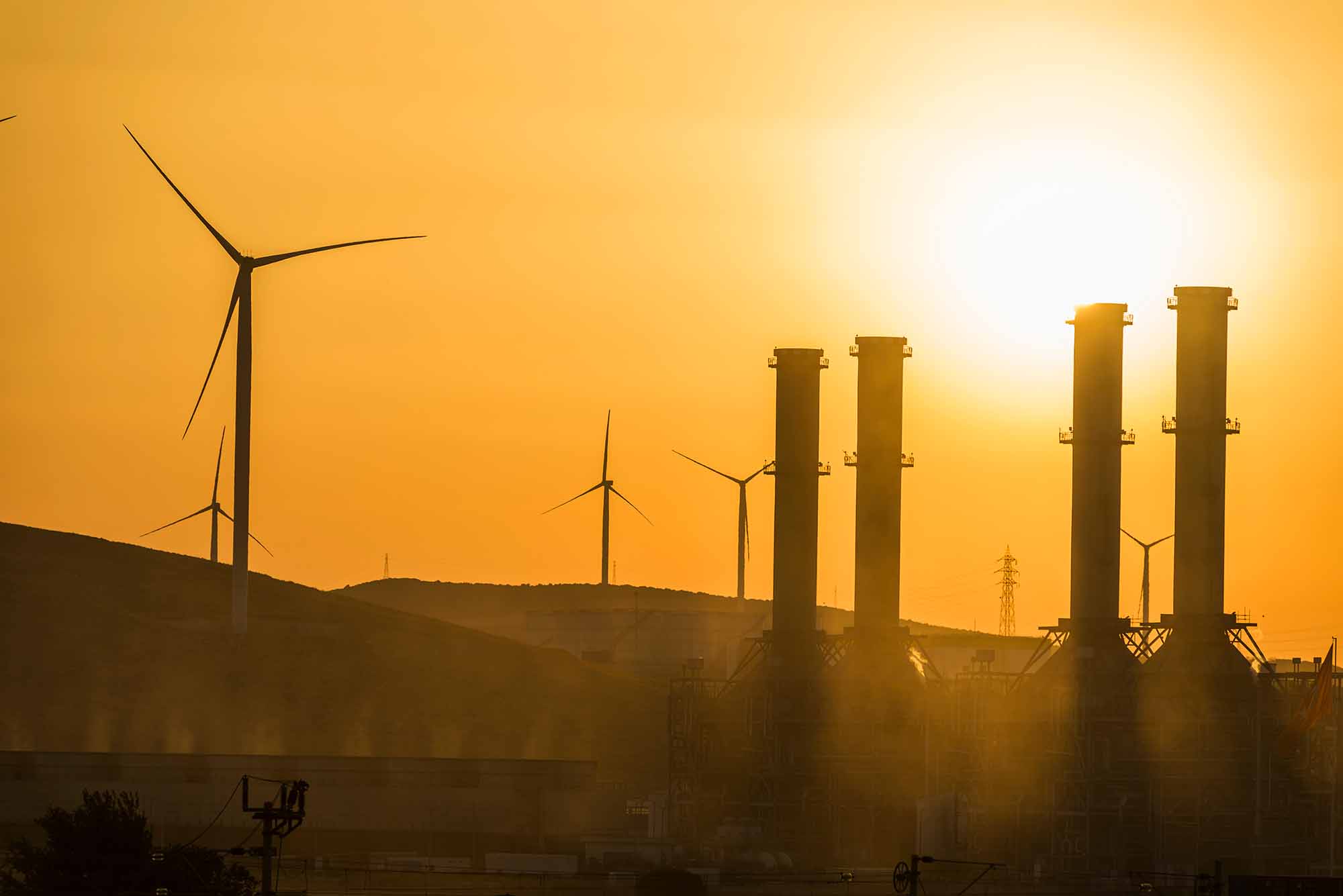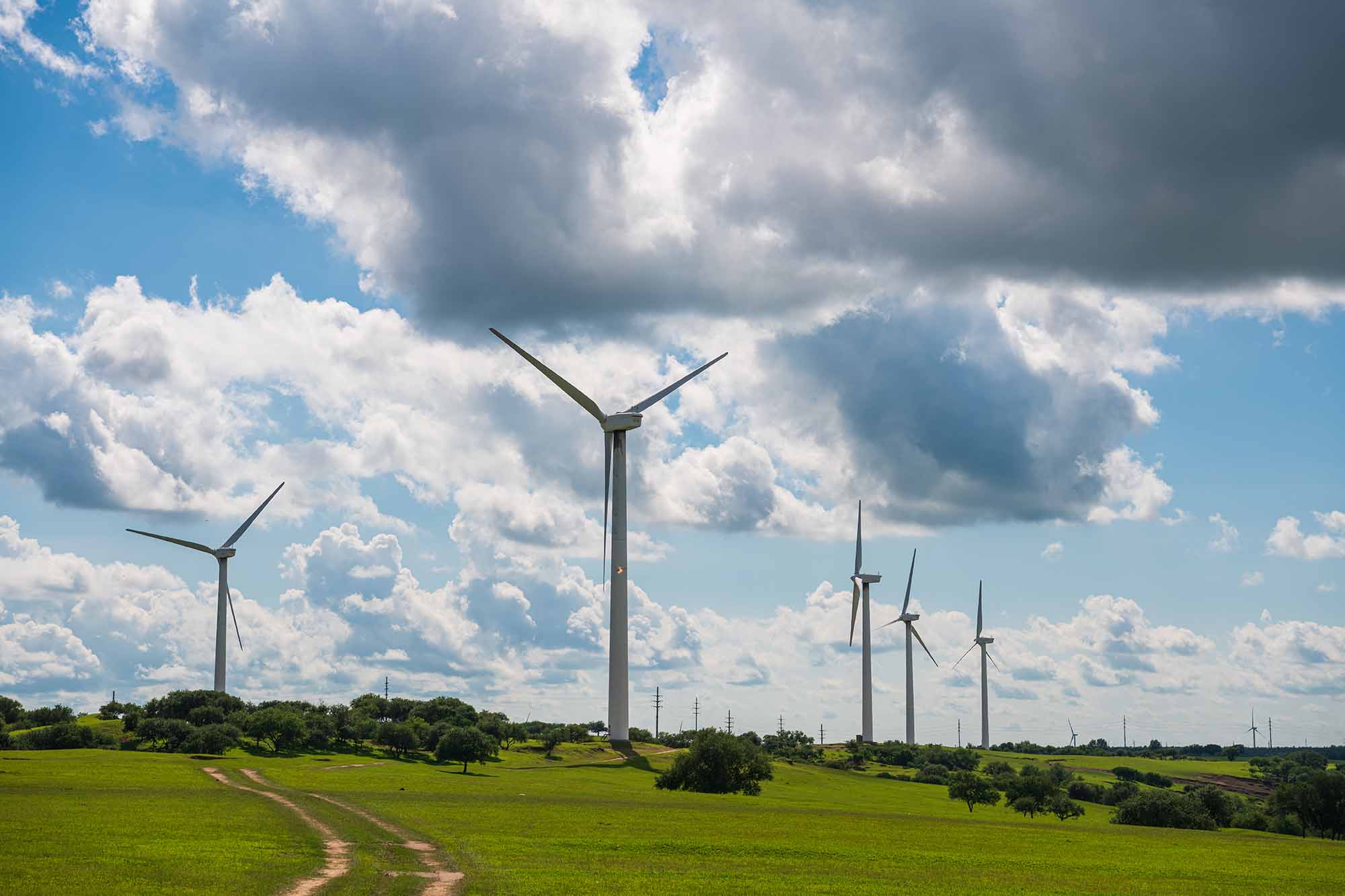WWW.RENEWABLEENERGYWORLD.COM
What’s stopping us from meeting our clean energy goals?
Depending on who you ask, you can expect answers ranging from stalled interconnection queues to outdated policy, from supply chain problems to lack of new transmission buildout.
A common thread across the industry? Workforce woes.
“More and more it’s been hard to find the skilled labor that we used to have for retirement reasons, and then I don’t think kids were going to the trade as much,” notices Julian Hoover, energy storage section manager at EPC Burns & McDonnell.
“One of the big things I worry about is workforce,” confirmed Carl Newton, DSD Renewables vice president of strategic operations. “Not just from the standpoint of the professionals that work in it, but from the craft labor side of it. One thing inside the IRA that I vehemently agree with is the apprenticeship piece and the prevailing wage. It’s helped to pull some better quality craft into the business, but it’s got to expand because of the scarcity of labor. The contractors are able to pick and choose and mark up in a way that can be detrimental in certain areas.”
Never fear, a new solution is here- spearheaded by a conglomeration of elected officials intent on solidifying America’s clean energy workforce.
The Governors’ Climate-Ready Workforce Initiative
During an event at Climate Week NYC, the U.S. Climate Alliance launched the Governors’ Climate-Ready Workforce Initiative to grow career pathways in climate and clean energy fields, strengthen workforce diversity, and jointly train 1 million new registered apprentices by 2035 across the Alliance’s states and territories. The U.S. Climate Alliance is a bipartisan coalition of 24 governors representing about 57% of the U.S. economy and 54% of its population, spanning from Maine to California and including the territories of Guam and Puerto Rico.
Under this Initiative, the Alliance will collaborate to collectively support one million new workers in completing Registered Apprenticeship programs across the coalition by 2035. These programs, registered with the U.S. Department of Labor or federally approved State Apprenticeship Agencies, provide an especially valuable and proven career pathway, empowering workers to earn while they learn in key climate-ready occupations and industries, the Alliance says.
Alliance members will also advance a series of collective goals aimed at strengthening and expanding pathways into a wide variety of climate-ready professions critical to building a clean, equitable, and resilient net-zero future. The Initiative’s goals include boosting job quality and ensuring climate-ready employment pathways lead to good-paying, high-quality jobs; expanding opportunities for workers from underrepresented and underserved communities; and promoting the use of stackable and portable credentials in climate-ready fields to build transferable skills, support reskilling and upskilling, and strengthen workers’ economic mobility. A full list of the Initiative’s goals can be found here.
New multi-state cohorts focused on in-demand, climate-ready fields will team up to provide a platform for states and territories to increase collaboration, share evidence-based practices, engage experts and stakeholders, and develop sectoral workforce solutions that can be scaled across the country. Cohorts to be launched in the Initiative’s first year will focus on careers in the following areas:
- Clean energy, fuels, and technologies: Led by Michigan and New Jersey, this cohort will focus on careers in the design, construction, and maintenance of a clean, affordable, and resilient power system; the manufacturing and deployment of zero-emission vehicles and technologies; and the development and distribution of alternative, low-carbon fuels.
- Clean buildings and industry: Led by Maine and Massachusetts, this cohort will focus on careers in the engineering, design, construction, retrofitting, maintenance, and operation of buildings and industrial processes that are clean, energy-efficient, healthy, and resilient.
- Resilient communities and lands: Led by Arizona and Vermont, this cohort will focus on careers in the development and maintenance of safe, livable, and resilient communities; preparedness for and response to climate impacts such as extreme heat, wildfires, severe storms, flooding, and drought; and the deployment of natural climate solutions and climate-smart stewardship of our lands and waters.
This Initiative builds on a number of federal-state collaborations between the Alliance’s members and the Biden-Harris Administration, including a White House convening with Alliance governors’ offices in May focused on creating good-paying jobs and mobilizing a diverse workforce in climate and clean energy.
“We need a climate-ready workforce – from EV technicians and heat pump installers to solar panel manufacturers – to meet our carbon reduction goals,” said New Mexico Governor Michelle Lujan Grisham, co-chair of the Alliance. “The Executive Order I’m issuing today in conjunction with the Alliance’s new Workforce Initiative will help ensure that workers from all backgrounds have access to the skills and training needed for high-quality, climate-ready jobs across New Mexico.”
“A skilled and well-prepared workforce will drive innovation, create new businesses, and ensure a sustainable, resilient future for our country,” added fellow co-chair and Governor of New York, Kathy Hochul.
Making progress
DSD’s Newton says one of the keys to ensuring we build up the workforce of the future is “convincing people that it’s a worthwhile thing to come into and start.”
Since its inception in 2017, the U.S. Climate Alliance has been attempting to do that.
In July, Alliance members collectively secured approximately $2.6. billion to implement ambitious measures that deliver significant reductions in greenhouse gas emissions and substantial community benefits under the Climate Pollution Reduction Grants (CPRG) program. Earlier this year, 23 of the Alliance’s members set themselves up for about $2.9 billion under the Biden administration’s Solar for All program, which enables low-income households across America to access residential solar power.
According to White House National Climate Advisor Ali Zaidi, the United States added more than 250,000 new American energy gigs in the last year, and the clean energy jobs sector is growing twice as fast as any other.
“I have seen a slow incline in foreman and general foreman level being younger and younger from when I started construction,” offered Burns & McDonnell’s Hoover. “Those we called the ‘gray hairs.’ You know, they have the experience. And now kids are being called on sooner, like in their late 20s, to take on those leadership roles on site. With the proper education and the training programs, I think it’s going to help fold that into the future.”












